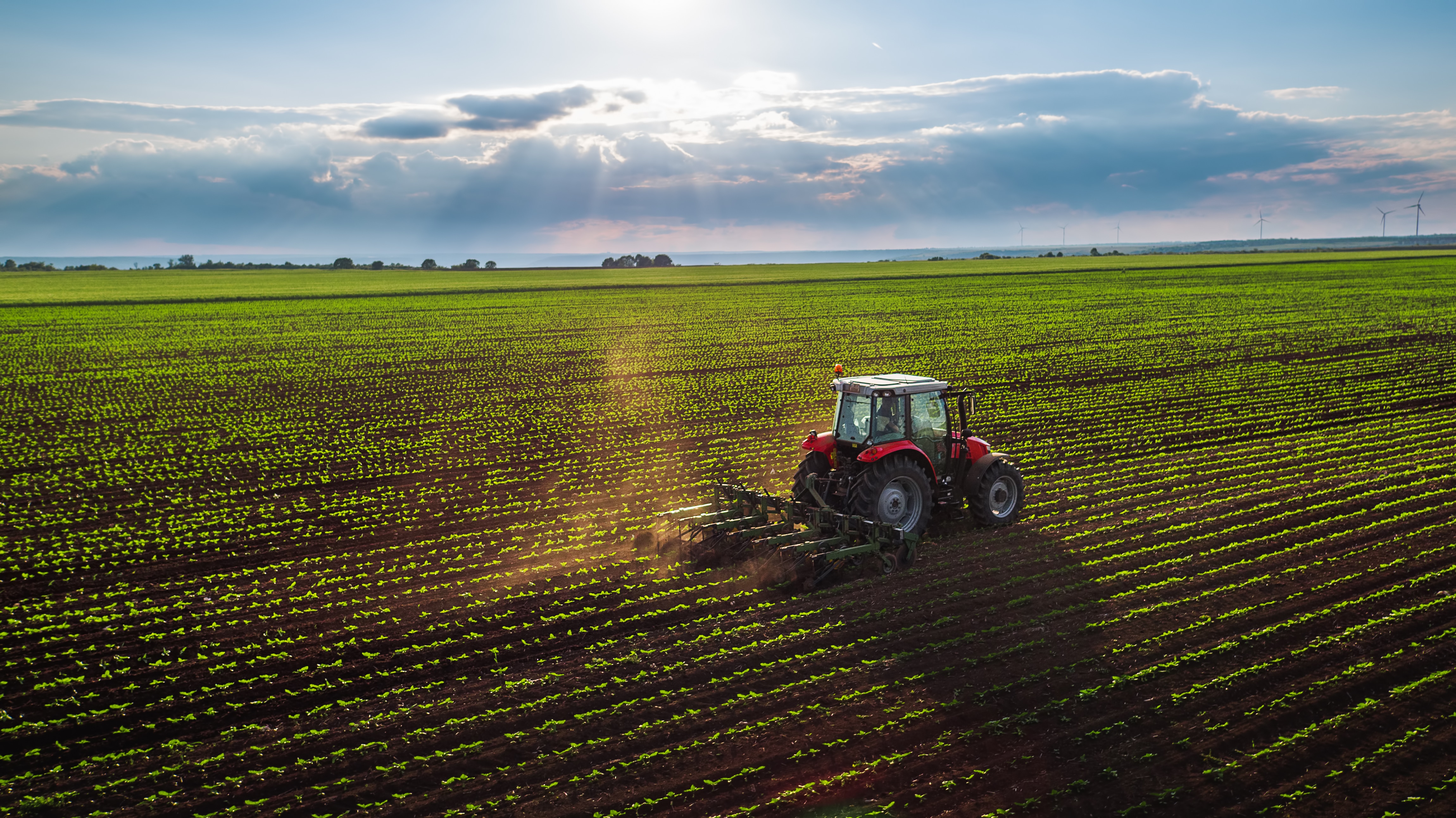
As Aotearoa New Zealand moves towards normalising mātauranga Māori and ways of doing business, the kōrero (conversation) around our transition to a holistic value-system is significant.
The increasing understanding of the wisdom and benefits of a kaupapa Māori approach by agribusiness, government agencies and other institutions has the potential to be game changing for Māori landowners. It could take them from a persistent cycle of challenges to removing the barriers and limitations that currently restrict them from achieving their aspirations.
These challenges aren’t new and, as yet, haven’t been successfully resolved. They include:
- The urbanisation of Māori and the implications this has on workforce availability
- Connection to iwi and customary practices
- Adaptation to the impacts of climate change
- Capital and infrastructure constraints
- Lack of access to advisory systems
- Low cultural awareness within advisory systems, workforce capability and Te Tiriti o Waitangi (Te Tiriti) settlements.
Addressing systemic barriers will also require reform of regulatory and legislative frameworks affecting Māori land. Simplifying planning processes and enabling easier access to capital can unlock whenua Māori potential and create pathways for new investment.
We explore a number of these barriers in more detail and outline recommendations for overcoming them.
How Māori view their whenua
Māori have a long history in Aotearoa New Zealand working the whenua (land), protecting and caring for it as a taonga (treasure). Approaching whenua as a taonga tuku iho (a sacred treasure passed down) is a core part of a te ao Māori (Māori world) perspective that people, whānau, iwi, and hapū have followed as a way of life for generations.
The significant connection Māori have to the whenua and their role as kaitiaki (caretakers) over their taonga is key to the way the whenua is used and worked on.
While profit has traditionally been viewed as one of the most important measures of success, for Māori businesses' success is also strongly aligned to people, planet and purpose. These are driven by cultural prosperity, environmental stewardship, social responsibility, and intergenerational wealth creation.
As a result of these ingrained values and a deep relationship with the natural world, Māori agribusinesses are leaders in many areas including intergenerational business planning and sustainable production techniques.
Whenua Māori
In Aotearoa, approximately 5.5% of the total land area is classified as Māori land, 98% of which is considered Māori freehold land.2 Historically, colonisation, land confiscations, and inequitable land policies have profoundly impacted the nature of Māori land ownership in New Zealand. Legislative measures, particularly the New Zealand Settlements Act of 1863, facilitated the removal of extensive Māori land following the New Zealand Wars. The ensuing land court processes contributed to a fragmentation of ownership and the alienation of Māori land control.
As a consequence of these historical injustices, Māori often retained land that was less suitable for agricultural use and development, primarily situated in remote and challenging areas. This has resulted in a significant underutilisation of Māori land, with around 40% considered under-performing and another 40% under-utilised.3 Only 3% of Māori land is classified as highly versatile, suitable for diverse uses, thus limiting economic opportunities and sustainable development.4
Despite these challenges, Māori land plays a crucial role in New Zealand’s economy. Value added (production GDP) for the Māori agriculture, forestry, and fishing industry was $3.6bn in 2023.
The total asset base in the Māori agriculture, forestry, and fishing industry was just shy of $40bn in 2023.1 This was comprised of:
There are 4,908 Māori-owned businesses in agriculture, forestry, and fishing. Of this total, 1,686 Māori-owned businesses operated sheep and beef farms, followed by 1,209 Māori owned businesses which operated in dairy.
Māori-owned businesses are becoming increasingly involved in exporting, directly and indirectly. Māori exports in 2023 were led by the primary sector, contributing $1.9bn in exports. This was followed by the manufacturing sector ($1.9bn), the majority of which ($1.1bn) was related to primary sector activity such as dairy and meat processing, and other food manufacturing.
In 2023, there were 21,468 Māori workers in the agriculture, forestry, and fishing industry. This comprised of:
Māori-owned agribusiness
Despite steady growth over time, Māori-owned agriculture, forestry, and fishing businesses have continued to perform below average compared to non-Māori owned businesses. In 2020:
- 38% of Māori-owned agriculture, forestry and fishing businesses are medium or large size (based on Māori owned businesses with a net GST of more than $20,000).
- The average indicative margin was $260k (roughly 67% of the average Aotearoa business).
- 36.5% of total sales is indicative margin (lower than non-Māori businesses). 5
Māori land
- 1.404m hectares of freehold land titles are owned by Māori, made up of 27,679 freehold land titles. Overall, the average Māori land block is 53.06ha and has 114 owners.
- Only 42.5% of blocks have management structures.
Awa & moana
- 33% of Aotearoa’s fishing quota volume (47% of value) is owned by Māori.6
The Māori agribusiness ecosystem
To unlock opportunities for Māori landowners, it's crucial to understand their dynamic ecosystem. Recognising the diverse landowners, whenua, and aspirations allows the opportunity to craft strategies together with landowners that leverage strengths and drive sustainable growth.
The Māori agribusiness ecosystem framework below identifies key groups, their roles, and contributions, highlighting the richness of the system that surrounds Māori land ownership. By fostering collaboration and innovation, this system has the potential to transform challenges into opportunities.
The following Māori agribusiness ecosystem framework articulates the key groups, their roles and example aspirations.
Group |
Role |
Aspiration |
| Māori landowners | Owners of whenua Māori, or governors of Māori trusts, which hold the assets of whenua Māori as well as ownership in Māori agribusinesses. This ownership is represented as shareholders through legal entities such as Māori corporations, trusts, or through shared land block ownership. |
|
| Governors | The governors of Māori businesses manage collectively-owned assets and are accountable to multiple owners and shareholders, sometimes numbering in the thousands. Their role is to advise, manage, monitor and deliver on the aspirations of Māori landowners who have a vested interest in Māori agribusiness. |
|
| Farm managers | This group manages and operates the Māori agribusiness operations on whenua Māori on behalf of Māori landowners. They are responsible for the management and day-to-day operations of Māori agribusinesses. | Ensuring the day-to-day mahi delivers on the strategy of the business through good management and performance. |
| Advisors | Individuals that provide in-house and external advisory services that support the agribusiness in achieving its aspirations. These roles are wide-ranging, varied and cross many groups such as government agencies, industry groups and private sector companies. | Supporting farmers, growers and whenua Māori owners to achieve their aspirations. |
| Government | This group represents all of the government agency touchpoints that Māori agribusiness and wider stakeholders interact with in the course of business-as-usual. They provide investment support, and set the regulatory/policy environment. |
|
| Industry participants | These are industry-specific companies, industry bodies and private industry companies that operate and support the Food and Fibre sector. This support includes extension, advocacy, workforce development, and research / development activities. |
Supporting Māori outcomes through understanding impact, partnering, considering different models and ways of doing things, and including and enabling Māori in the sector. |
Opportunities and challenges for Māori agribusinesses in the food and fibre sector
PwC has engaged with Māori agribusinesses across Aotearoa New Zealand and found a number of common themes to opportunities and challenges. It’s worth noting that many of these are persistent, perennial issues that require deeper understanding to resolve. However, through this kaupapa, PwC has identified a series of opportunities that will help achieve transformational change.
Cultivating skills and development
Māori agribusinesses are uniquely positioned to tap into the aspirations of whānau, hapū, and iwi, forming enterprises that reflect their collective vision. This presents a tremendous opportunity to build a workforce deeply connected to these aspirations. By focusing on developing skills at all levels—from on-farm workers to governance roles—there is a chance to cultivate a rich pool of talent aligned with Māori values and priorities. However, it is important to address the challenges of ensuring that advisors and trainers understand and respect cultural nuances, which is crucial for truly empowering Māori agribusinesses.
Time and capacity optimisation
The dedication of Māori agribusiness governors to their core responsibilities highlights a strong commitment to maintaining business operations. We have also observed that governors and managers of Māori agribusinesses appear to be required to manage a wider and deeper range of issues than their mainstream counterparts, impacting delivery of strategic priorities. Streamlining processes and leveraging technology can help optimise time and capacity, allowing governors to focus on strategic growth and access additional advisory support. There is also a need for advisors who can bridge the gap between business acumen and cultural understanding to unlock new opportunities and funding avenues effectively.
Enhancing governance and capability
Māori landowners carry a profound legacy of leadership and governance that has the power to enhance contemporary structures. By leveraging this rich heritage, we can significantly strengthen governance capabilities to align with the aspirations of Māori owners, ensure access to essential technical skills, and foster robust relationships with key stakeholders.
Culturally aware governance models are vital for effective decision-making, enabling Māori entities to navigate a broad spectrum of outcomes, including environmental stewardship, profit generation, and long-term sustainability. Recognising the distinct aspects of Māori governance, particularly collective governance structures, and the requirement and intergenerational expectations to serve the community is essential.
Equitable funding and resource access
Māori agribusinesses have a strong foundation of community and relationship-building that can be leveraged to access funding and resources. By fostering equitable partnerships and creating pathways for smaller enterprises to connect with funding opportunities, these businesses can achieve growth and innovation that align with their unique goals and values. However, ensuring that funding mechanisms are accessible and culturally sensitive remains a critical challenge. Government or private sector facilitated lending options for Māori land development will improve the feasibility of development projects.
Cultural knowledge and integration
The deep cultural awareness and mātauranga (Māori knowledge) inherent within Māori communities provide a strong basis for developing culturally aligned business practices. By integrating te ao Māori, tikanga, and kaupapa into business strategies and engaging with industry participants, Māori agribusinesses can lead the way in creating culturally fit systems that benefit the entire sector. Overcoming the challenge of integrating these elements into mainstream business practices requires ongoing education and collaboration with advisors and industry partners. Te ao Māori led brands continue to resonate with consumers, aligning with global trends of positive environmental footprints, quality control, and growing interest in indigenous brands internationally. This alignment has resulted in greater brand recognition and price premiums for a range of core Māori produced products.7
Building long-term partnerships
Māori landowners bring a unique perspective on partnership, valuing long-term, high-trust relationships grounded in whanaungatanga. This approach offers a pathway to forge meaningful collaborations that go beyond financial metrics, encompassing social, environmental, cultural, and spiritual outcomes. These partnerships can also create opportunities for innovation in other areas (e.g. agritech and renewable energy) that can create value for a wider farm system. While these perspectives are a strength, ensuring that partners fully appreciate and commit to these values can be challenging but is essential for achieving holistic success that resonates across generations.
Four opportunities to achieve transformational change for Māori agribusinesses
1. Greater collaboration between Māori, industry and
institutions
Co-designing, co-creating, and co-developing programmes are essential strategies for fostering initiatives that meet the current and future needs of Māori agribusinesses. The current system engages Māori only at select stages of the planning, design, and execution process, rather than throughout the entire value-chain. By consistently involving Māori across every phase, it would not only achieve better outcomes for Māori, but also for the wider industry and institutions involved.
A collaborative, systems-oriented approach presents an opportunity for greater prosperity for all stakeholders within the value-chain. By working together – from Māori landowners and producers, their whānau and communities, to processors, distributors, wholesalers, retailers, and ultimately consumers – there is the potential to realise greater value by connecting Māori-produced kai and the end consumer.
A more unified and collaborative approach would generate greater benefits for all stakeholders. This approach would leverage the strong buying power and scale that Māori agribusiness have, improved ability to mitigate and overcome production risks, a stronger market presence, increased sharing of knowledge and resources, and the capacity to facilitate better negotiations for deals both domestically and internationally.
2. Workforce pathways for rangatahi (youth), pakeke
(mature adults), tauiwi (non-Māori) and Māori
To address the skills and training shortage faced by Māori agribusinesses, it’s best to design career pathway programmes that take a holistic “who, what, when and where” targeted approach. This requires a redesign of the current approach to partnerships and engagement with Māori and must be underpinned by a kaupapa-led approach with iwi, hapū and whānau at the centre of each programme design.
For example, multiple pathway schemes could be designed to cover apprenticeships for school leavers, Māori career change pathways and tertiary career pathways. Pathway design should also consider a national, regional and local level to formulate targeted strategies.
3. Embedding mātauranga Māori
Advisors that support the agribusiness sector, such as primary industry, private and public sector, finance and legal sector and on-farm advisory, need mātauranga Māori capability. There is significant opportunity and appetite for iwi, hapū and marae to collaborate with the sector to design future-fit support services that embed mātauranga Māori capability. Embedding mātauranga Māori not only strengthens advisory systems but also protects cultural intellectual property and ensures that traditional knowledge is recognised and valued in both domestic regulation and international trade.
4. Partnerships, ventures, and long-term relationships
There is an unrealised opportunity for Māori products to command a price premium through provenance, cultural distinctiveness, and Indigenous collaboration agreements. This strengthens the global position of Māori exporters and tourism ventures.
Māori agribusinesses that have achieved a sustainable business model in domestic markets now see opportunities to expand into export markets. Māori agribusinesses in this space are open to international partnerships that are long-term in nature (typically more than 25 years) and establish ventures that foster new and closer relationships, diversification of portfolios, access to newer, and value-aligned markets, and new sources of income. The New Zealand government and large exporters are critical partners in supporting this opportunity, and in particular, recognising the differentiation brand Māori and brand Aotearoa can have in international markets.
How we can help
PwC’s Food and Fibre and Manukura teams are committed to going beyond transactional partnership arrangements with Māori and to build enduring, sustainable and meaningful relationships. We aim to help Māori agribusinesses achieve their economic and social aspirations in an intergenerational manner. Our community of experts look forward to a kōrero on how we can collaborate with you.

















